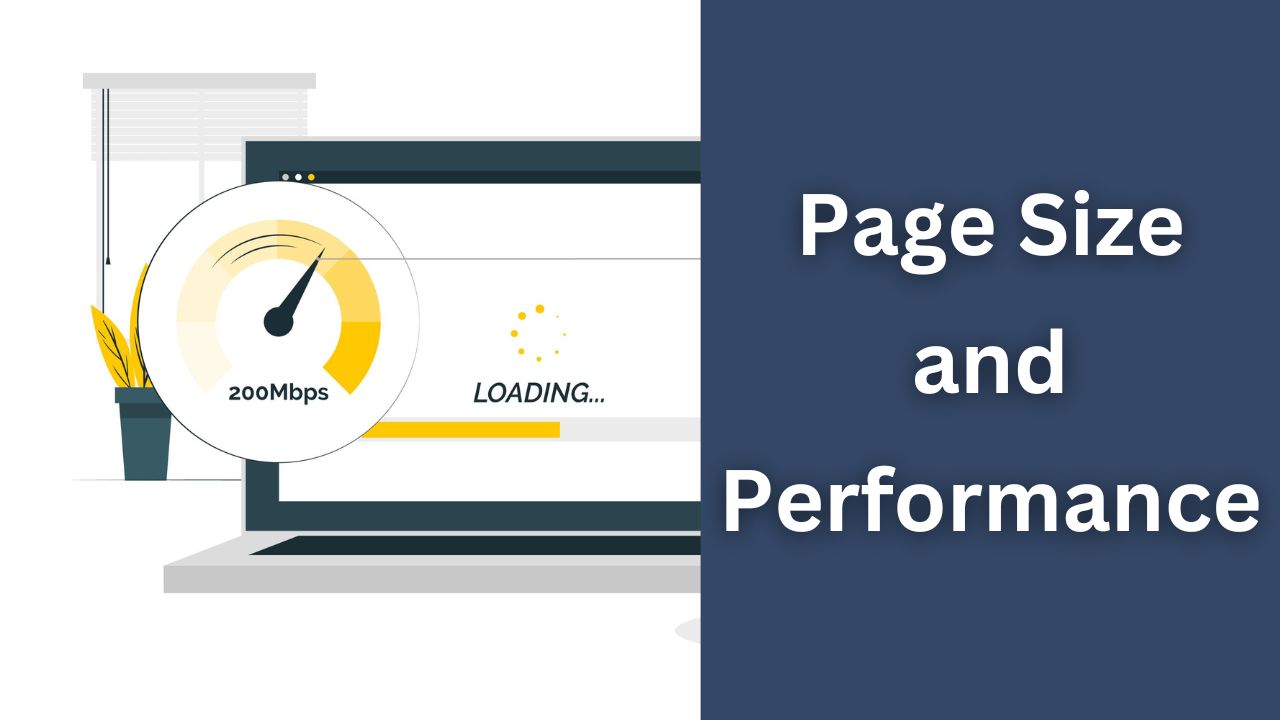Page size refers to the total amount of data that a webpage contains including everything from text and images to scripts and other elements that make up a web page’s content.
Webmasters have to understand and monitor the page size because larger pages can lead to slower loading times and a less satisfying user experience.
How Page Size Affects Loading Speed?
The size of a webpage directly impacts its loading time because larger page sizes require more time to be downloaded and rendered by a user’s browser.
This delay can frustrate users and lead them to abandon the site before it even fully loads. Thus, no leads and no conversions.
Importance of Webpage Optimization
Website optimization involves making various adjustments to improve the performance and user experience of a website.
Because smaller page sizes generally load faster, which reduces bounce rates and keeps visitors engaged.
Here are some reasons why optimization is important:
- Optimized code and algorithms run faster and use resources more efficiently.
- Optimization can help minimize the use of system resources such as memory, CPU, and disk space.
- Faster response times and smoother interactions make a better user experience.
- Well-optimized systems can handle increased workloads and scale better without compromising performance.
- Optimized code is often easier to maintain and debug. Clean and efficient code is less prone to bugs and is more understandable to developers.
The Threshold for Large Page Size
Ideally, you want to keep your web page size as smaller as possible. Try to make it 100 KB or less. But they can vary depending on your niche.
However, a common guideline is that a web page size exceeding 1-2 megabytes (MB) is often considered too large and can lead to performance issues.
How to Check Web Page Size?
To check a web page size you can use a page size checker tool. This tool analyzes the various elements on a webpage, such as images, CSS, JavaScript, and more, to provide you with the page’s overall size.
To use this tool all you need to do is to enter the website’s URL and click Check. The tool will then show you the page size in Bytes and KB.

Why Page Size Checker is Important?
Using such a tool can improve your website speed and user experience
- When reducing unnecessary or oversized elements, you can improve loading times.
- Faster-loading pages tend to retain users, reduce bounce rates, and encourage more interaction.




